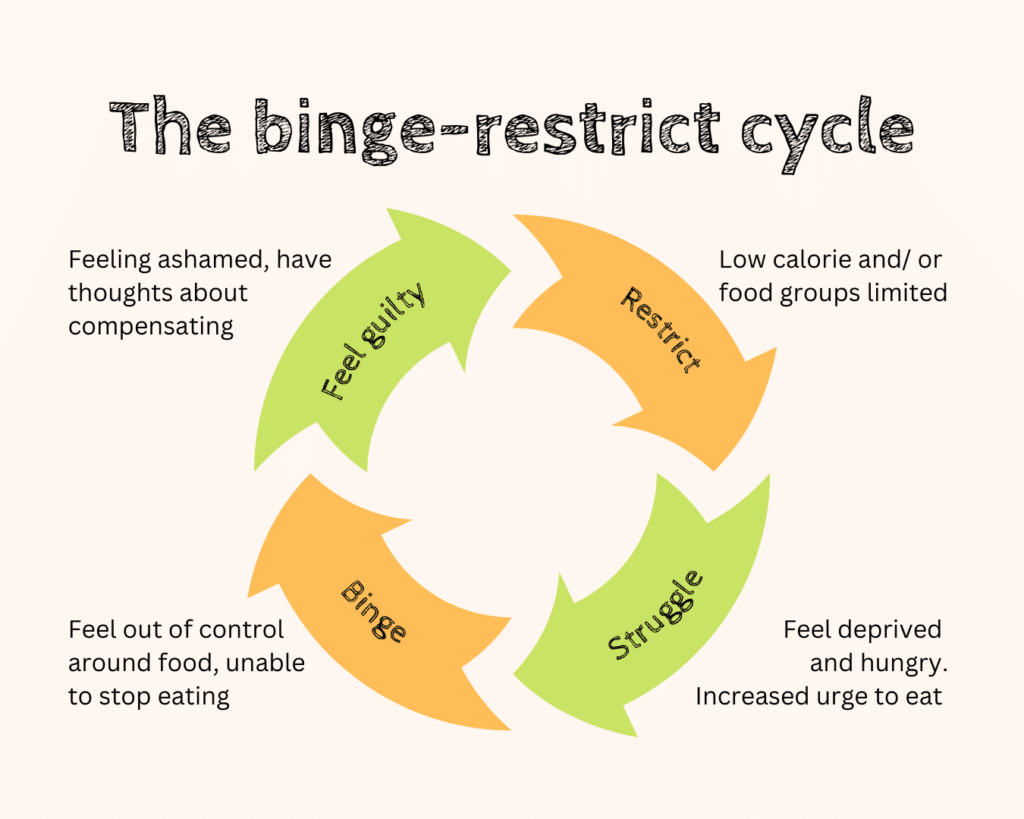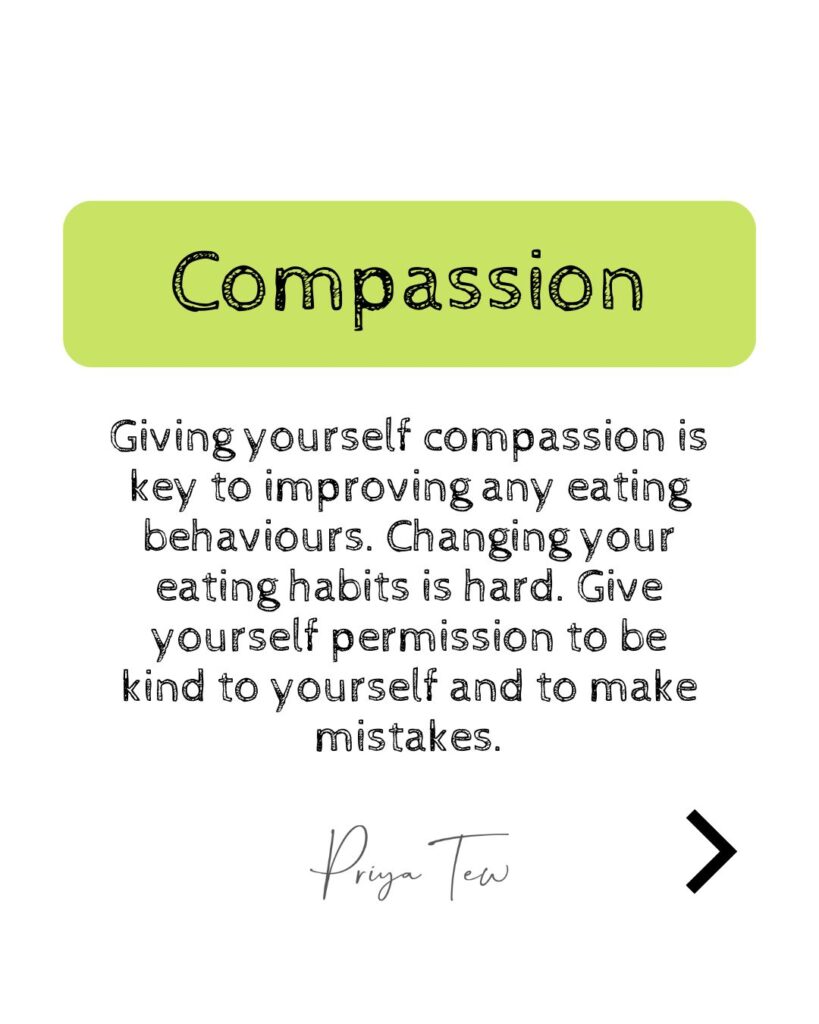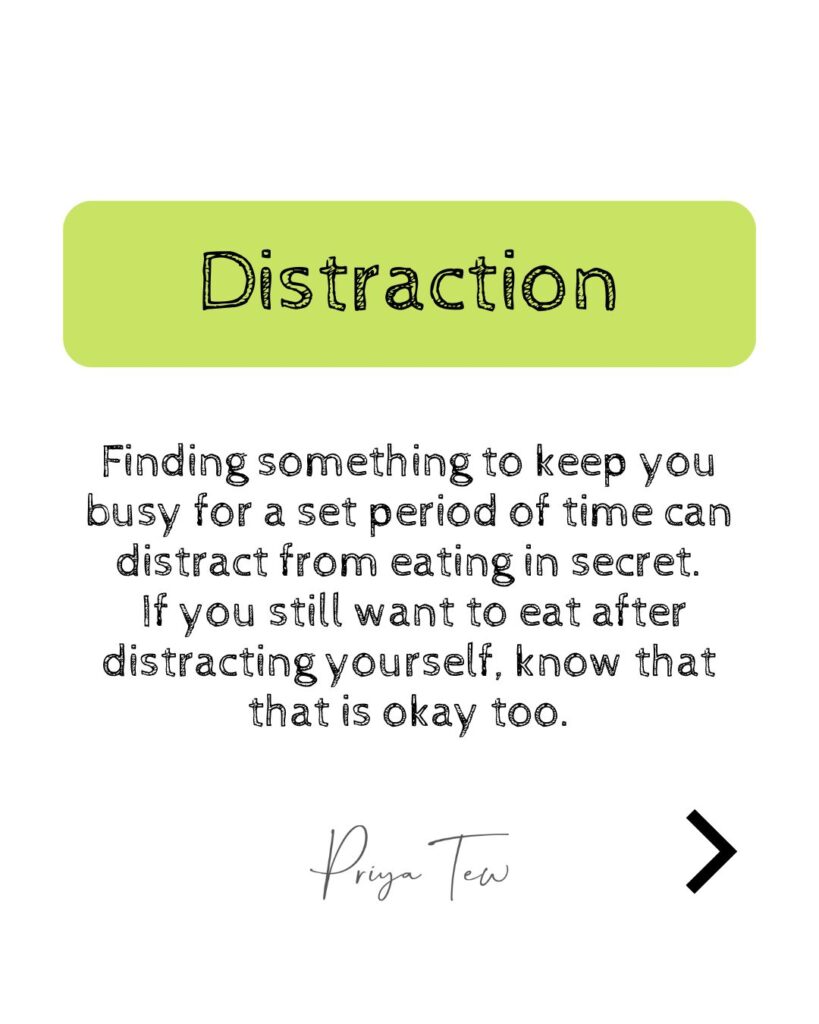What is a secret eating?
Secret eating is eating that is intended to be concealed and private from others. When someone eats in secret, they are aiming to find a way to hide their eating habits. This may include hiding away to eat in a location away from others, avoiding eating in front of others, or hiding what is eaten. Perhaps they will eat in their room and then hide the wrappers. Now I’m sure most of us have hidden away on occasion to eat something away from others (for example something you don’t want to share!), secret eaters will do this on a regular basis.
It is much more common than you might think. For example, a survey showed that 54/% of patients with binge-eating disorder reported secret eating that was separate to their binges. Whilst, secret eating is not a form of eating disorder it can be symptomatic of binge eating disorder (BED). In fact, secret eating is part of the criteria for BED.
Eating in secret can start in childhood and continue to adulthood or start as an adult. A large component of secret eating is shame, which can also lead to food hoarding.
You can experience eating in secret and not have an eating disorder. However, it isn’t something you should have to deal with.

4 reasons why you may be a secret eater
1. Secret eating : Judgement from others
We are taught by society that some foods are good and others are bad. Which leads us to believe that if we eat a “bad” food then we are bad. Now in reality this makes no sense. Eating a food cannot make you good or bad as a person. However, thinking this way can mean you want to hide
So many of us can eat in a way to minimise shame, judgement and criticism from others. Which can of course lead to an increase in secret eating and not wanting to ask for support.
2.Secret Eating: Deprivation of food or emotional support
If you did not have enough food to eat at a certain stage of life or were restricted in your food choices it could lead you craving those foods more. Food cravings can feel overwhelming and lead to overeating which often happens in secret.
Or perhaps you struggle with difficult situations and emotions. For many of us, food can be a way of helping managing emotions. Perhaps it has been a hard day and you just fancy curling up on the sofa with crisps. The class breakup food is often portrayed as ice-cream. None of this is wrong. Unless it is your only coping strategy. Working on having a range of coping skills is important.
3. Secret Eating: A way to gain control over life
A small study found that some women secretly ate as way to exert some control over their life. It could be the current stage of life is one where you feel the bottom of the list and are looking after everyone else. It makes sense that having some time to yourself is needed. That can be found in the form of secret eating.
4. Secret Eating: Restriction of food
Not eating enough can lead to secret eating at a later point of the day/week. Perhaps you started this as a way to lose weight. Eating less in your normal meals and snacks can help you feel as if you are making healthy changes. The problem comes when you restrict too much or cut out the foods that bring you enjoyment. This can lead to you eating more in secret.
How eating in secret can lead to the binge restrict cycle
The binge-restrict cycle is characterised by periods of restricting foods, followed by bingeing and back to restriction. This cycle can be a feature of binge eating disorder, bulimia and anorexia too. It can also feature in disordered eating patterns, and can feel very distressing. If you recognise these feelings, they may be a driver of your secret eating.

Whilst this can feel worrying, there is hope and we can step in to stop the cycle.
Stopping the binge restrict cycle is best done from the source: by stopping restriction. This means giving yourself unconditional permission to eat all foods. At first, this can feel scary, and even out of control. You may feel concerned that you may overeat certain foods. And initially, your eating habits might change in favour of eating larger amounts overall, or of certain foods. This is a natural response to the release of restriction, but it does settle down.
The more you become accustomed to having unconditional access to all foods, the less of a novelty your previously forbidden foods will have. Because you will now have unrestricted access to all foods, the guilt of eating certain foods should reduce or disappear. With guilt and shame removed from the picture, you will have removed one of the major drivers of secret eating.
How to stop secret eating
Keep a track of what you eat and your triggers:
Long term I don’t advocate keeping a food diary but it can be a useful thing to do when you are working out why you eat in secret. Keep a note of the basic meals and snacks you have (this does not need to include calories or macros). Also record when you eat in secret and why. This can help you identify patterns and triggers.
Stress, loneliness, boredom, anxiety and tiredness. When you work out some of these triggers you can work on alternative strategies to use instead.
Distraction Techniques:
Distraction can be a helpful initial tactic when you feel the urge to eat in secret. This doesn’t mean completely burying your feelings, but having something to do can stop food being at the forefront of your mind. If you still want to eat after you’ve had a set period of time distracting yourself, know that that is okay too. You can learn more about dealing with eating urges here.
Longer term is it good to work on the other steps listed here so that distraction is not the only stategy you use.
Calming activities:
Secret eating can occur when you do not have enough alternative coping strategies to use. Having coping mechanisms to reduce stress and help calm your nervous system is essential. It is something we all need to work on daily.
I encourage people in clinic to make a list of activites to try to do daily and some to do weekly: For example… a daily walk outside, a daily craft, a daily meditation and a daily 5 min breathing exercise. Weekly you may be able to go for a longer walk in the forest, a paddle down the river, a Pilates class or some gardening. These things want to be activities that leave you feeling calmer and more in control of life.



Make peace with food and eat enough:
Work on noticing diet culture all around you. Maybe this is in conversations with others, things you watch on the TV or articles you read. It is often ingrained into our family conversations too. Once you notice it you can start to reject it.
Making peace with foods means accepting all foods as being good for us. Whether they provide lots of nutrition or bring pleasure to our taste buds, they can all play a role in our diet. No foods are bad foods.
Eating enough can mean you do not get a craving because you are hungry or feel deprived of food. Instead you feel nourished and your bodies needs are being met.
Accept your body:
If you have been eating less or dieting as a way to change your body or lose weight it is time to start working on some self acceptance. We cannot spot reduce our bodies and whilst weight loss is possible it is not always the best plan to focus on that as your sole outcome. This is very hard and takes time!
Give yourself plenty of compassion:
Giving yourself compassion is key to improving any eating behaviours. Changing your eating habits is hard. Give yourself permission to be kind to yourself and to make mistakes. It is not your fault that you have developed these behaviours. Once you have identified it as being something to change then you are part way there. Change takes time however.
Therapy and dietetic help:
Getting professional support can really assist with your eating behaviours. A dietitian can help to develop realistic strategies around food and a therapist can support with any underlying reasons that may be .
You can book in with the Dietitian UK team here.
